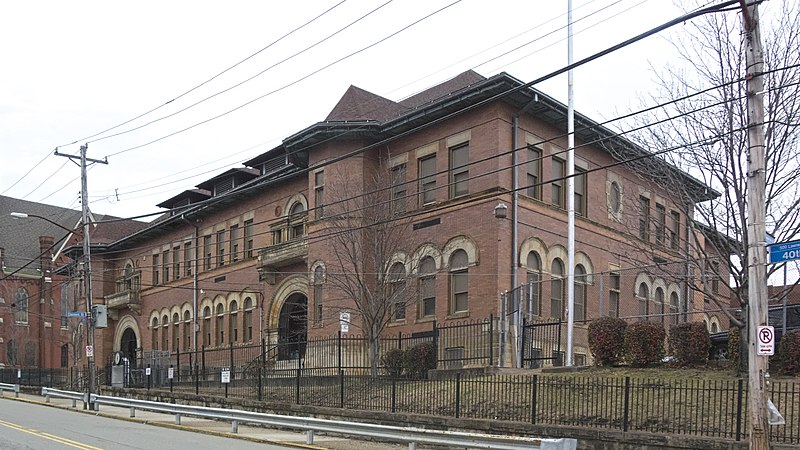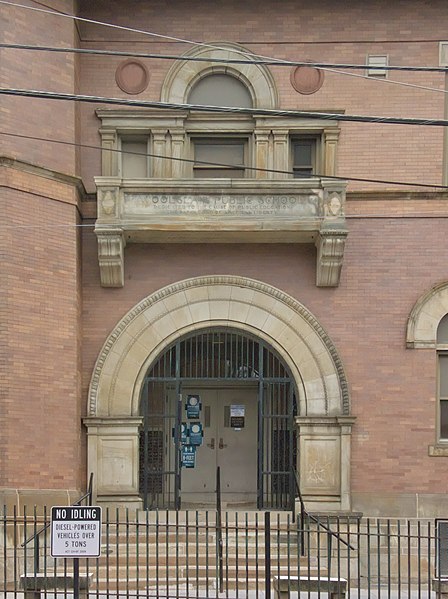
James T. Steen designed this building, whose cornerstone was laid in 1892. It was a home for orphans and aged women, at a time when Pittsburgh’s industry was mass-producing widows and orphans. It is still a home for the aged under the name Canterbury Place.


The most striking feature of the building is its flamboyantly Baroque entrance. Old maps show us that it was once in the middle of a nearly symmetrical façade, but the right wing was demolished to make way for the modern high-rise section.




The local historians Joann Cantrell and James Wudarczyk have written a book on Pittsburgh’s Orphans and Orphanages that gathers firsthand memories of many of these institutions and shows us that, in spite of the inevitable institutionalism of the facilities, most of them were not the Dickensian nightmares we imagine when we hear the word “orphanage.”




















